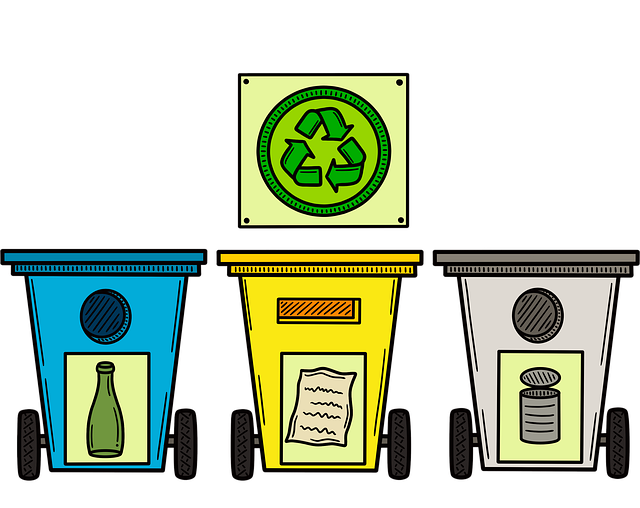The NYS electronic recycling law in Boston imposes strict guidelines on businesses for e-waste management, aiming to protect the environment and promote responsible recycling. Businesses must establish programs for collecting, sorting, and recycling e-waste, utilizing nearby certified centers to comply with regulations and avoid penalties. Incentives like tax credits drive sustainable practices, leading to improved local communities, reduced toxic pollution, and a circular economy, benefiting both residents and the environment.
In New York State, the NYS electronic recycling law mandates responsible disposal of e-waste. This article explores how the legislation impacts both businesses and residents, focusing on Boston’s successful e-waste management strategies under the law. We delve into the incentives offered, analyzing the benefits for local communities and the environment. By understanding these aspects, we can appreciate the broader implications of effective e-recycling practices in NYS and similar regions.
- Understanding NYS Electronic Recycling Law
- Boston's E-Waste Management Under the Law
- Incentives for Businesses and Residents
- The Impact on Local Communities and Environment
Understanding NYS Electronic Recycling Law

The New York State (NYS) Electronic Recycling Law aims to ensure proper management and disposal of electronic devices, promoting environmental protection and responsible recycling practices. This law applies to all businesses and organizations operating within NYS, including those in the Boston area. It sets clear guidelines for the handling of electronic waste (e-waste), such as computers, phones, and appliances, to minimize environmental impact and ensure valuable materials are recovered.
Business owners in Boston and across NYC should be aware of their responsibilities under this legislation. They must establish a program for collecting, sorting, and recycling e-waste generated from their operations or by customers. Electronic recycling centers near me in Boston can offer convenient drop-off points for businesses to adhere to NYS guidelines. By comparing NYC vs. Boston’s electronic waste disposal laws, we find that both cities prioritize sustainable practices but with distinct regulations. Understanding these requirements is crucial for businesses to comply and contribute to a greener future for the state.
Boston's E-Waste Management Under the Law

Boston, like many cities across New York State (NYS), has implemented a robust electronic waste (e-waste) management system to ensure proper disposal and recycling of electronics. The NYS electronic recycling law requires businesses and residents to responsibly handle e-waste, promoting environmental protection and sustainable practices. In Boston, this translates into strict guidelines for the collection, processing, and recycling of electronic devices.
Under the NYS rules, the Best practices for Boston area electronic recycling involve proper segregation, collection points, and partnership with certified recyclers. The Best time to recycle electronics under Boston’s NYS regulations is typically during scheduled collection events or at designated drop-off centers. Non-compliance with these e-waste recycling laws can lead to significant NYS penalties, emphasizing the importance of adhering to local and state guidelines for responsible e-waste management.
Incentives for Businesses and Residents

Incentives play a significant role in promoting sustainable practices, and New York State (NYS) has implemented various measures to encourage electronic recycling, including in Boston. The NYS electronic recycling law incentivizes businesses and residents alike to responsibly dispose of old electronics, thereby reducing environmental impact. Businesses operating in Boston can benefit from tax credits and grants when they comply with the state’s e-recycling regulations, making it a financially advantageous step towards sustainability.
For residents, the law provides convenient options for recycling old tech, ensuring compliance not just with NYS environmental initiatives but also with local Boston regulations. By participating in these programs, individuals contribute to a circular economy and help protect the environment by properly managing hazardous materials found in electronic devices. This collaborative effort between state and local authorities fosters a culture of responsible disposal and encourages everyone to take part in preserving the city’s green landscape.
The Impact on Local Communities and Environment

The implementation of the NYS electronic recycling law has had a profound impact on both local communities and the environment in Boston. By mandating proper e-waste management, the state incentivizes businesses to participate in electronic waste reduction programs. This not only promotes a more sustainable future but also creates green jobs within the community. The positive effects extend beyond economic benefits; it helps reduce the environmental footprint associated with improper disposal of electronic devices, which often contains toxic materials like lead and mercury.
As a result of these NYS incentives for businesses promoting electronic recycling in Boston, local residents enjoy a cleaner and healthier environment. Additionally, the NYS legislation on proper e-waste management in Boston ensures that electronic waste is recycled or disposed of in an eco-friendly manner, minimizing pollution and its detrimental effects on local ecosystems. These initiatives are a testament to the state’s commitment to fostering a circular economy where resources are conserved and reused, benefiting both present and future generations.
The implementation of the NYS electronic recycling law has not only set a standard for responsible e-waste management but also inspired cities like Boston to adopt similar initiatives. By offering incentives for businesses and residents, New York State is encouraging participation in e-recycling programs, leading to significant environmental benefits. These efforts ensure that local communities are protected from harmful waste disposal practices while fostering a sustainable future through proper electronic recycling methods.














